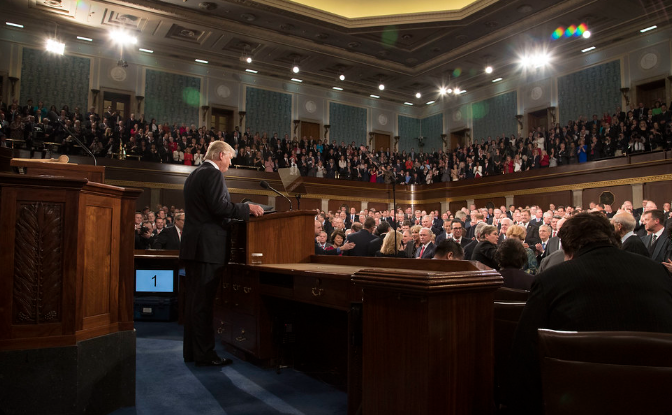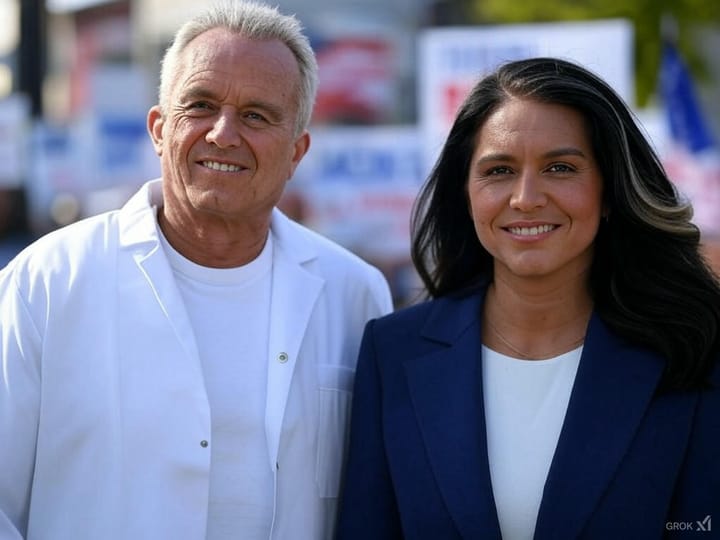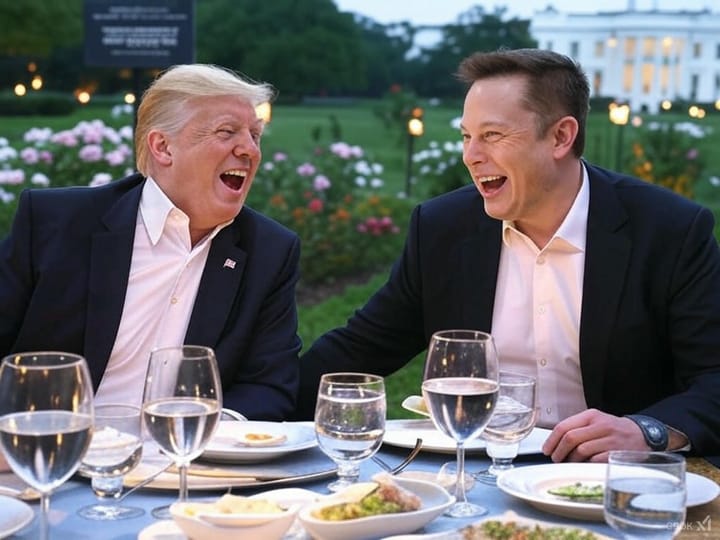Kamala Harris: The Path to World War III? Why Your Vote Matters in 2024
The stakes in the 2024 election are monumental. Voting for Kamala Harris could mean escalating conflicts worldwide—a trajectory toward World War III.

The stakes in the 2024 election are profoundly significant, transcending a mere choice between two individuals or political parties. This election represents a fundamental decision about whether America stands at the precipice of peace or war. Casting a vote for Kamala Harris, given her documented history, rhetoric, and policy preferences, may very well mean voting for the escalation of global conflicts—a trajectory toward World War III.
From the contested waters of the South China Sea to the war-torn fields of Ukraine, the Biden-Harris administration’s foreign policy has been perilously provocative. Kamala Harris's recent appearance on CBS News' 60 Minutes reveals her unwavering commitment to American interventionism, offering little in the way of diplomatic solutions and instead amplifying aggressive posturing. This continuation of misguided foreign policy endangers American interests, ensnaring the nation in conflicts that bring neither security nor prosperity.
Rising Tensions with China
China and the South China Sea: Recent developments in the South China Sea, where tensions between China and the Philippines have reached alarming levels, underscore the ineffectiveness of the current administration’s foreign policy. Recent developments in the South China Sea, where tensions between China and the Philippines have reached alarming levels, underscore the ineffectiveness of the current administration’s foreign policy. As Al Jazeera reports, China’s increasing assertiveness in the region has been exacerbated by the Biden-Harris administration’s erratic and confrontational stance—an approach Kamala Harris has fully endorsed. This escalation, devoid of a strategic framework for de-escalation, is akin to playing with fire.
The South China Sea is among the world’s most critical trade routes, and any significant disruption could have catastrophic effects on the global economy. Harris's failure to articulate a nuanced strategy for de-escalating tensions is not merely concerning—it is perilous. Her persistent antagonism of China, with no diplomatic alternatives in sight, risks a direct military conflict with a nuclear-armed superpower. A confrontation over a cluster of disputed islands in a far-off sea is not a necessity for American security; it is a reckless gamble that could lead to unimaginable consequences.
The Escalating Ukraine Conflict
Ukraine: More Than Aid, It’s Escalation: Under the current administration, the U.S. has directed billions of dollars towards the conflict in Ukraine. Under the current administration, the U.S. has directed billions of dollars towards the conflict in Ukraine. As highlighted by the Council on Foreign Relations, this influx of military and financial support has only further fueled the conflict without any realistic vision of an endpoint. Kamala Harris remains an advocate for ongoing military involvement, showing little regard for the risk of escalation that might corner Vladimir Putin into even more desperate measures. According to reports from Al Jazeera and the Kyiv Independent, the war is not abating—it is intensifying, with entrenched forces on both sides and new offensives looming.
What is the objective here? How many more American tax dollars must be sacrificed in the name of a conflict with no clear resolution? How many more lives must be lost before we recognize that the current approach is untenable? Harris’s approach, which revolves around continuous support without a defined strategy for peace, is not leadership—it is imprudence. The protracted nature of the Ukraine conflict, and Harris's unwillingness to push for a viable diplomatic resolution, risks embroiling the U.S. in a direct confrontation with Russia—a scenario that must be avoided at all costs.
The Middle East Crisis
The Middle East Powder Keg: The recent surge in violence in the Israel-Palestine conflict, alongside escalating tensions with Iran, presents yet another front where Harris's foreign policy stances have been counterproductive. The recent surge in violence in the Israel-Palestine conflict, alongside escalating tensions with Iran, presents yet another front where Harris's foreign policy stances have been counterproductive. CNN reports on the increasing exchanges of violence, including threats of broader regional involvement from Lebanon and Iran. Harris's unequivocal support for Israel's military actions—while legitimate in recognizing Israel's right to self-defense—has lacked the balanced diplomacy required to foster a path toward peace.
American involvement in the Middle East has historically resulted in unintended and often disastrous consequences. Instead of learning from these past mistakes, Harris appears poised to repeat them. The Israeli-Palestinian conflict is deeply complex, requiring a balanced and tactful approach to mediate peace. Instead, Harris’s one-dimensional support for militaristic responses risks inflaming the situation, emboldening regional hardliners and escalating tensions. As Iran and Lebanon watch these developments closely, Harris’s approach threatens to ignite a broader regional war—another costly conflict America cannot afford.
The Legacy of Peace Under Trump
The Trump Legacy: In stark contrast, the Trump administration’s foreign policy was defined by restraint and diplomacy. In stark contrast, the Trump administration’s foreign policy was defined by restraint and diplomacy. Newsweek noted that Trump’s term saw historic peace agreements and an aversion to initiating new military conflicts. He was the first president in decades to avoid dragging the United States into new wars. The Abraham Accords, for instance, represented a monumental step towards regional stability in the Middle East, showcasing Trump’s effective policy of “peace through strength” and his preference for negotiation over intervention.
The Abraham Accords were a testament to the potential for diplomacy when leaders prioritize dialogue over aggression. Trump’s willingness to engage adversaries and his pragmatic approach led to substantive progress in several regions. In contrast, Harris’s confrontational rhetoric lacks this same nuance and temperament. Her propensity to escalate conflicts rather than seek compromise and resolution raises serious concerns about her capability to handle the complexities of international relations without pushing America into new, avoidable conflicts.
A World on the Brink
A World on Fire: This is not a baseless scare tactic—it is a stark assessment of the reality we face. This is not a baseless scare tactic—it is a stark assessment of the reality we face. Under a Harris presidency, America risks escalating into conflicts on three distinct fronts: the protracted war in Ukraine, the volatile situation in the Middle East, and the increasingly contentious South China Sea. Harris’s foreign policy approach is neither calculated nor measured; it is fraught with the kind of recklessness that could precipitate a global crisis.
Consider a scenario in which the United States becomes entangled in three major conflicts simultaneously: a standoff with China in the Pacific, an escalating war in Ukraine, and a broadening Middle Eastern conflict involving Iran. The economic burden alone would be insurmountable, and the human cost unimaginable. Harris’s foreign policy lacks a coherent vision for peace—it offers only a future of relentless escalation. True leadership is about understanding when to demonstrate strength and when to pursue diplomacy to maintain stability.
Choosing Peace Over Conflict
The Stakes Are Too High: For those who believe in putting America’s interests first, in pursuing diplomacy, strength, and careful decision-making, a vote for Kamala Harris is untenable. For those who believe in putting America’s interests first, in pursuing diplomacy, strength, and careful decision-making, a vote for Kamala Harris is untenable. This election is about safeguarding our future—choosing peace, stability, and a foreign policy that places American lives and resources above reckless interventionism. We need leaders who understand that real strength lies not in the number of conflicts we can provoke but in the number of crises we can avert. America must not endure another administration that prioritizes conflict over negotiation, militarism over diplomacy.
The 2024 election is not merely a question of party allegiance; it is a decision about our survival. It is about charting a course that leads us away from global warfare rather than towards it. Harris has made her stance clear—intervention, escalation, and risk are her chosen paths. If we are to avoid a catastrophic world war, we must choose leaders who prioritize American security through diplomacy, not aggressive engagement. The stakes could not be higher.
Sources
- CBS News' 60 Minutes: Kamala Harris Interview
- Al Jazeera: What's Behind Escalating China-Philippines Tensions in the South China Sea
- Council on Foreign Relations: How Much U.S. Aid is Going to Ukraine?
- Al Jazeera: Russia-Ukraine War Key Events
- Kyiv Independent: Ukraine War Latest
- CNN: Israel War, Iran, Palestine, Lebanon
- Newsweek: Trump's Legacy of Peace





Comments ()